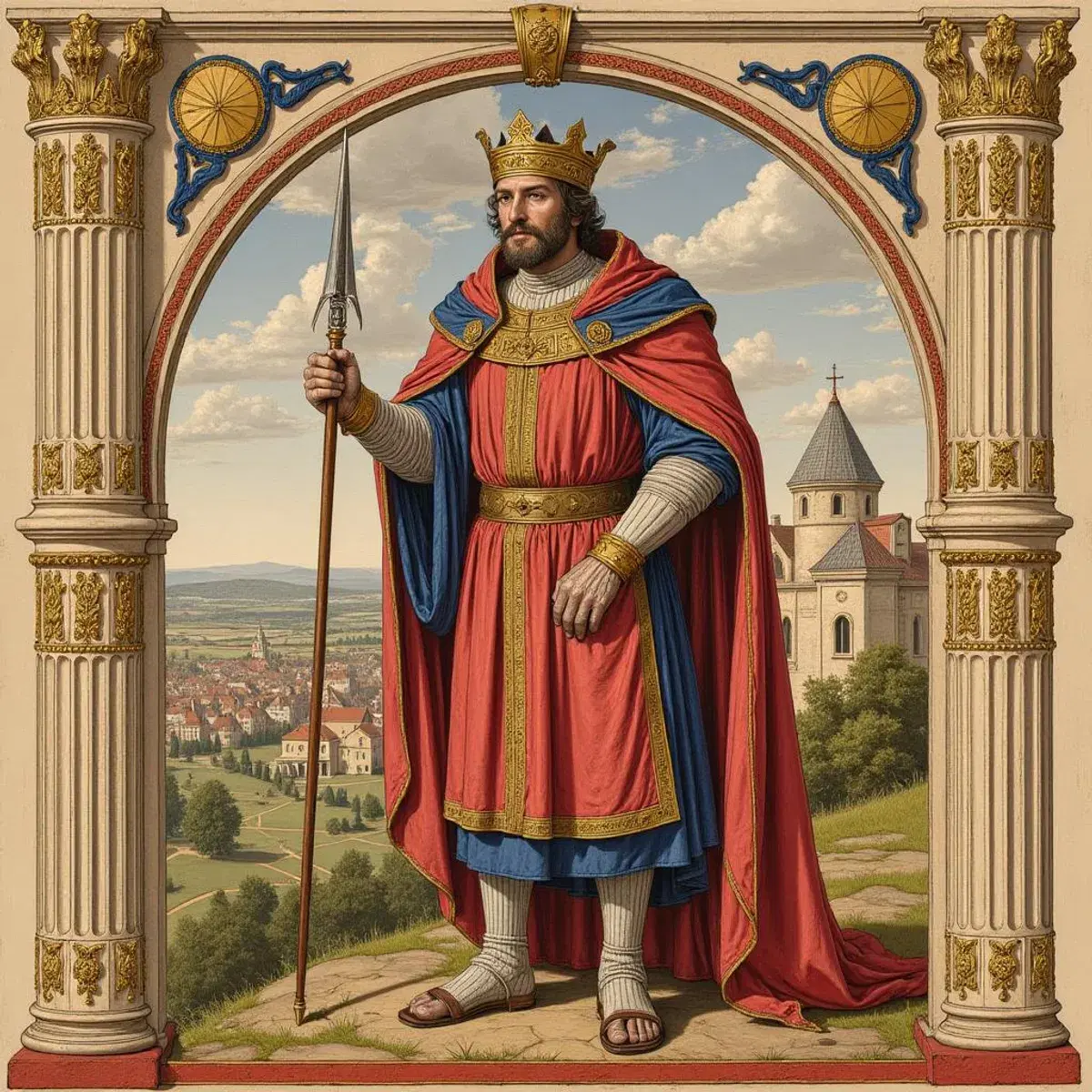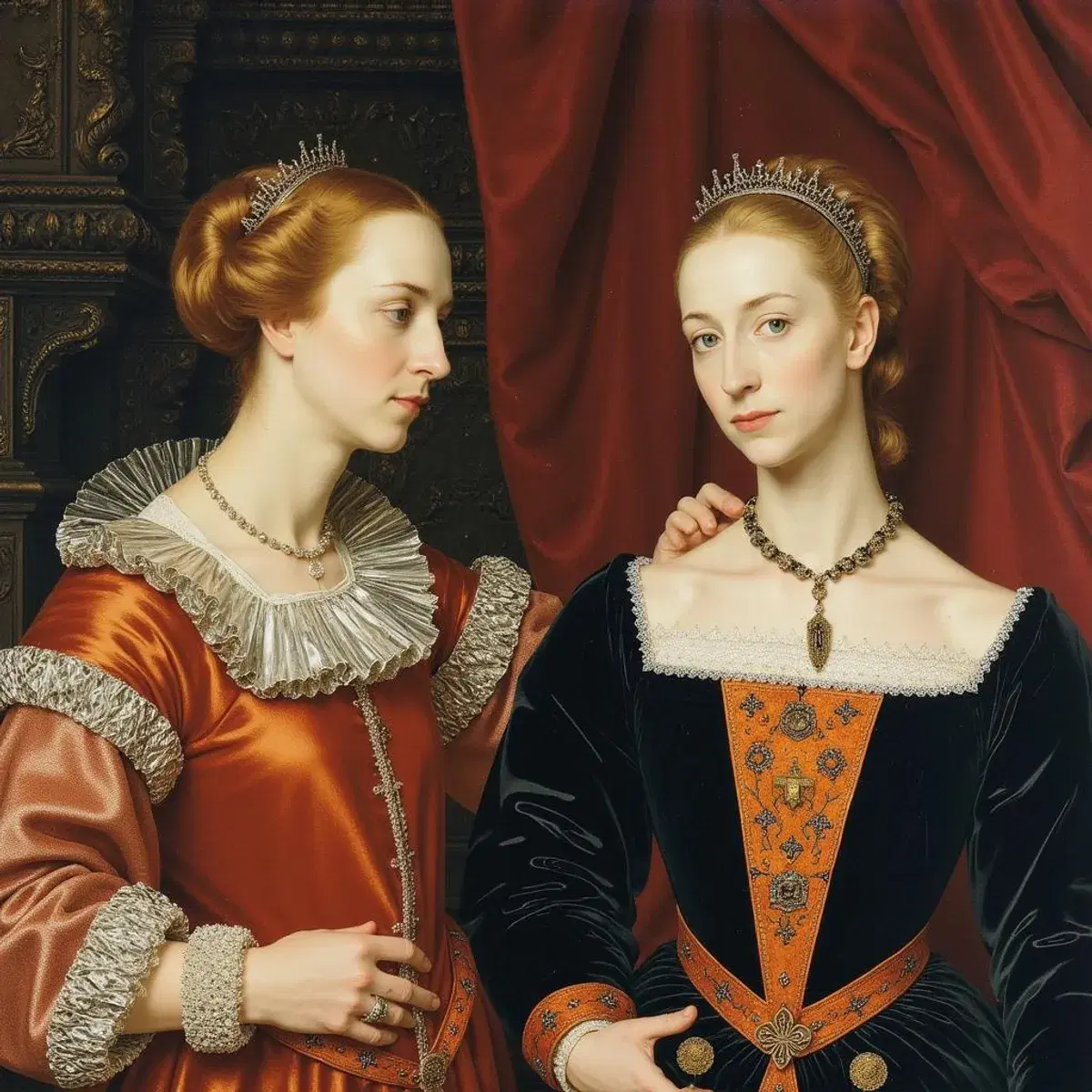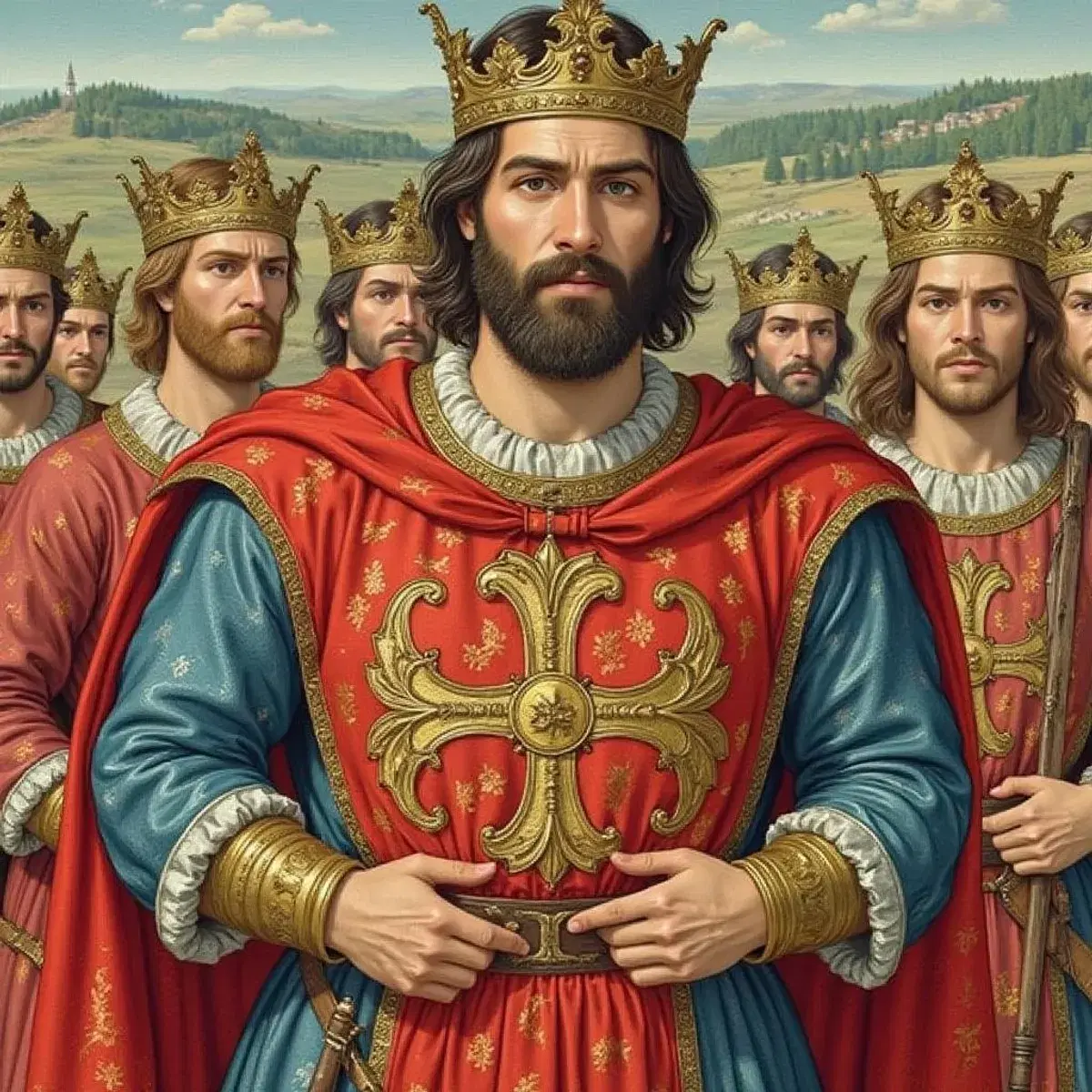King Clovis and the Rise and Fall of the Merovingian Kings
When Clovis, the king of the Franks, died, he left his kingdom to his four sons. Back then, the Germans had a custom where the father’s land and property were divided equally among all his sons. The Franks decided to do the same thing with Clovis’s kingdom, treating it like it was just any other property. Each son got a part of the land and ruled it as his own. But this caused a lot of problems.
Trouble with a Divided Kingdom
None of Clovis’s sons were happy with just their share of the kingdom. They each wanted the whole thing for themselves. This led to constant fighting, murders, and wars between the brothers. These battles made life very hard for the people. The kings often ended up being killed, and sometimes their long hair, which was a symbol of their royalty, was cut off. Losing their hair meant they could no longer be kings, so they were sent to live in monasteries instead.

King Clovis
A Family Betrayal
One terrible story from this time is about Clovis’s sons and their mother, Queen Clotilda. After one of the brothers died, his children were sent to their uncles because the uncles promised to make them kings. But the uncles had a cruel plan. They sent a message to Clotilda, asking her to choose whether the boys should have their hair cut or be killed. Heartbroken, Clotilda said she would rather they die than lose their royal status. The uncles took her words literally and killed two of the boys. The third boy managed to escape by cutting his own hair and becoming a priest.
Frankish Lands Split Apart
Over time, the Frankish kingdom split into two parts: the East Franks and the West Franks. These two areas developed their own ways of life. In the West, people began to speak a new language based on Latin, which eventually became French. In the East, they kept their old Germanic language, which evolved into modern German.
Two Ruthless Queens
About a hundred years after Clovis died, two queens named Fredegonda and Brunhilda became infamous for their hatred of each other. Their rivalry caused many wars and murders. Fredegonda was known for her schemes, while Brunhilda was accused of killing her own grandchildren and several kings to keep her power. Brunhilda’s life ended tragically when her enemies captured her. Although she was 80 years old, they tied her to a wild horse, which dragged her to her death. Fredegonda had died years earlier, but her actions were equally cruel.

Queen Fredegonda and Brunhilda
Strange Laws and Trials
The Franks, like other Germanic tribes, had some very unusual laws. One of these was the “feud,” where families avenged the death of a loved one by killing the person responsible. This often turned into long battles between families. Eventually, they introduced the idea of "wergeld," or "man-money." Instead of fighting, a killer could pay a fine to the victim’s family. Every person, and even different parts of the body, had a set price. For example, the wergeld for a nobleman was much higher than for a commoner.
The Franks also had strange ways of deciding if someone was guilty. One was called an "ordeal." In an ordeal, the accused person might have to stick their hand in boiling water to grab an object. If their hand healed without scars after three days, they were considered innocent. Another ordeal involved carrying a hot piece of metal or being thrown into a river. If you floated, you were guilty, but if you sank, you were innocent—though you had to be pulled out quickly! These methods seem odd today, but people back then believed God would protect the innocent.
Decline of the Merovingian Kings
The descendants of Clovis, known as the Merovingian kings, started to lose power over time. For the first 170 years, they were strong rulers, but after that, they became weaker. They gave away too much land and money to their nobles, leaving them with little for themselves. These kings became so poor that they traveled in ox-carts like peasants. They had fewer followers and no real power. By the end, they were called "do-nothing kings" because they were only kings in name. The nobles and royal ministers were the ones who actually ran the kingdom.
Changing Kingdom

Merovingian Kings
As the Merovingian kings lost their influence, new rulers stepped in to take charge. These leaders would go on to shape the future of the Frankish lands and all of medieval Europe. The tale of Clovis and his family is filled with ambition, betrayal, and survival. It’s a story that reminds us how empires can rise, crumble, and leave behind the foundations for modern nations.





